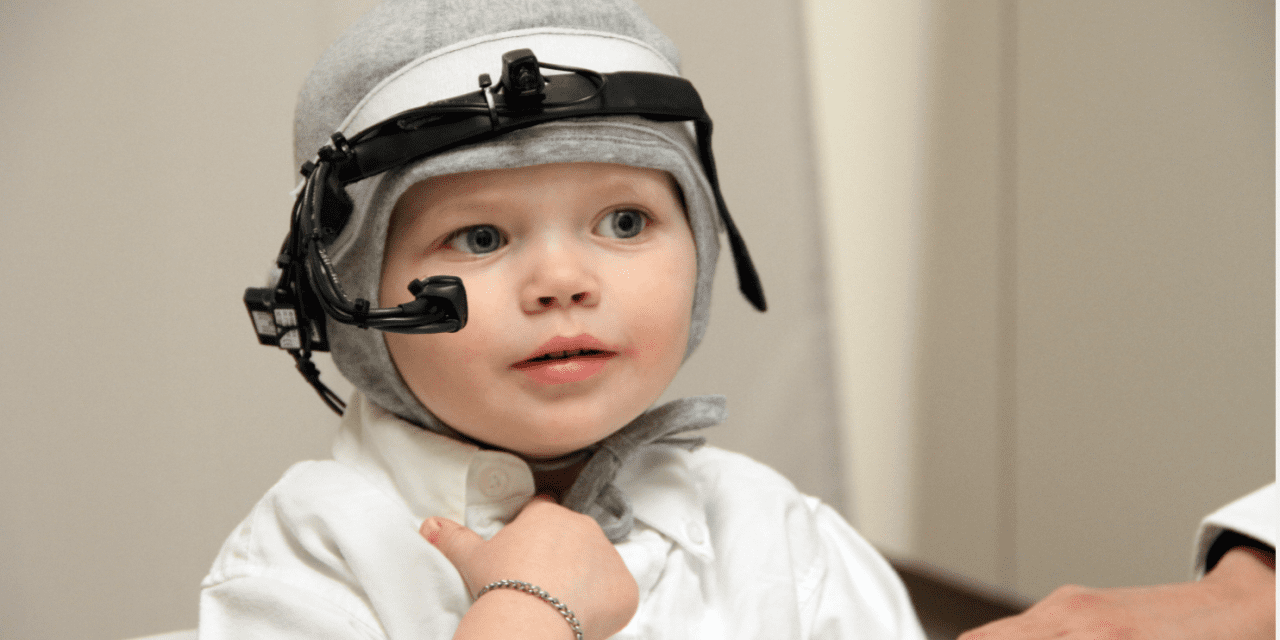A new study at The Ohio State University Wexner Medical Center seeks to better understand how children learn words, and researchers are using a high-tech approach to get answers, according to a February 27, 2017 post on Ohio State’s blog.
Cochlear implants have granted many children, who may have otherwise been deaf their entire life, the ability to hear. However, challenges still remain for them, as many with the implant struggle to develop language skills at the same rate as children with naturally normal hearing.
“Our approach is to examine how the hearing loss affects their basic, but very complex, interactions with their parents,” said Derek Houston, who is leading the research study at the Buckeye Center for Hearing and Development, in the post.
During the study, children wear eye-tracking cameras to record exactly where they focus their attention when their parent gives them a toy and says the name of that toy. This interaction is recorded using multiple camera angles.
“The timing of when a parent says a label and what the child is doing when the label is said predicts whether or not the child will learn a word,” said Houston.
The researchers hope to learn more about how children with cochlear implants absorb information to help parents better guide language development.
Source and image: Ohio State University Wexner Medical Center





